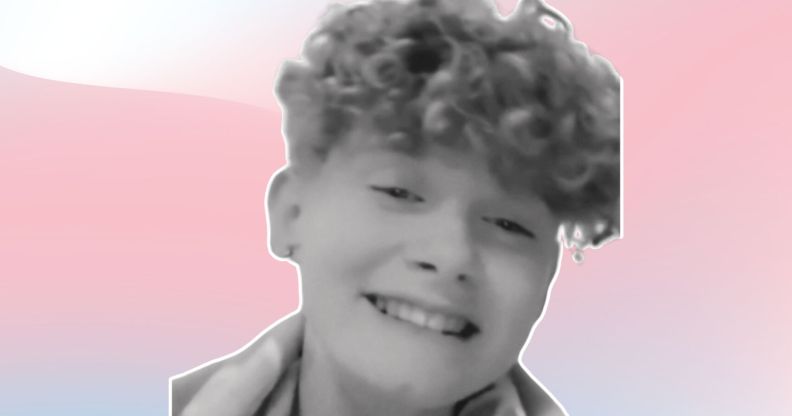17-year-old trans boy felt ‘worthless’ before his death, inquest hears

Charlie Millers, 17, at Prestwich Hospital in Manchester on 2 December 2020 (Canva/INQUEST)
A transgender teenager found unresponsive in his room in a mental health unit, had felt “worthless” and struggled with “feelings of shame”, an inquest has heard.
Warning: The following article contains discussions about mental health, self-harm and suicidal ideation.
Charlie Millers, 17, died at Prestwich Hospital, in Manchester, on 2 December 2020.
Two other young people, including a non-binary teen, died at the hospital, run by Greater Manchester Mental Health Trust, within nine months of Millers’ death, the Manchester Evening News reported.
The inquest heard that the teenager had suffered a lot of “trauma”, including having “acid thrown on him”, “sexual abuse” and being bullied at school.
He was also reportedly misgendered by healthcare staff in the five years up to his death, The Guardian reported.
Dr Laura Eccleston, the clinical psychologist in charge of the ward, testified before Rochdale Coroner’s Court that Millers felt “worthless”, struggled with “big feelings of shame” and didn’t “feel safe in his relationships”.
Eccleston said she was left traumatised by Charlie’s death after what had been a difficult year struggling with staff shortages.
Millers’ mother Samantha remembered her son as an “amazing human” who loved Morris dancing and football. His family described how the teen’s smile “affected and melted a thousand hearts”, and how he made time for others despite his own struggles.
Mrs Millers told the court that her son struggled with his mental health from around the age of five, and this worsened as he grew up. This included self-harm and suicidal thoughts.
She admitted that the family found it difficult to keep him safe, given that his self-harming was “really severe”, and she had asked for additional support including a personal assistant for her son.
There was a conflict between social workers from Trafford Council and the hospital that meant “nothing was ever decided at the end”, she added. Her son wasn’t “getting any support that would make him better” as a result, she claimed.
“It was a mess. Nobody knew where he was supposed to be going,” she told the court. “It was here, there and everywhere. Nobody knew what they were doing.”
Staff and patients misgendered Charlie despite the incidents upsetting the teenager, who was told that his life was a “car crash” by a psychiatrist, the court heard.
Charlie died from a hypoxic brain injury after being found unconscious. At the time, he was on a strict observation regime where he was supposed to be checked on every five minutes, the coroner was told.
The inquest, which was delayed from January last year because of a police investigation into whether records had been tampered with, continues.
The Manchester Evening News reported that the investigation concluded there was insufficient evidence to proceed with a prosecution for manslaughter by gross negligence.
Readers affected by the issues raised in this story are encouraged to contact Samaritans free on 116 123 (www.samaritans.org) or Mind on 0300 123 3393 (www.mind.org.uk). Readers in the US are encouraged to contact the National Suicide Prevention Line on 1-800-273-8255.

